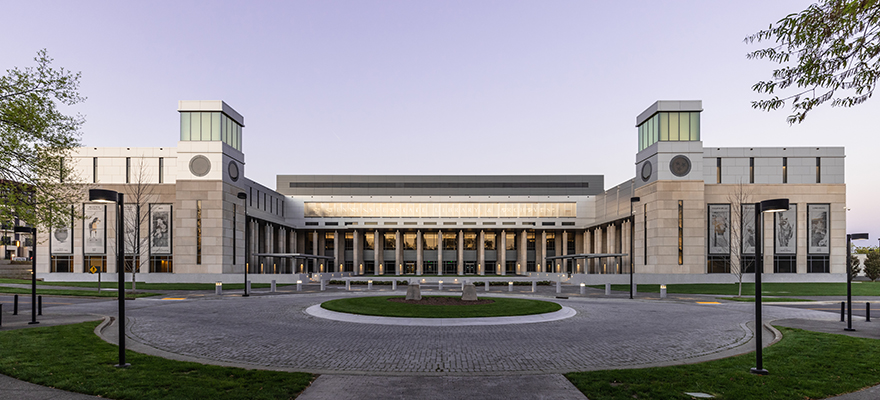Bass Pro Shops' new location is more than just a place where people can buy hunting and fishing gear. Located in The Pyramid, once the city's main venue for sports and entertainment events, the store is part of a complex that includes a restaurant, a bowling alley, an archery range, a man-made cypress swamp and a hunting lodge-themed hotel.
What visitors might not realize as they browse through 535,000-square-foot building is that many of the striking photographs of nature scenes that they see along the walls come from the Tennessee State Library and Archives.
 |
| A man fishing from his boat at Cove Lake State Park near Caryville (1938). Tennessee Department of Conservation Photograph Collection. |
Jeff Harper, a graphic designer for Bass Pro Shops, said details like interior decorations are so important to store development that they are discussed in a planning process that sometimes begins a year or two prior to the opening of new locations.
Harper said it's important that imagery accurately depicts the natural features and plant and animal life found in the areas where the stores are located.
"We like to regionalize our stores as much as possible," Harper said. "That way, they are uniqure and tie into their communities a little bit better."
 |
| A man fishing at Bald River Falls in the Cherokee National Forest (1947). Tennessee Department of Conservation Photograph Collection. |
Harper said Bass Pro officials looked at hundreds of images on the Tennessee State Library and Archives' website. Many of those photos were selected for the store and the hotel. They depict scenes showcasing Tennessee's natural beauty as well as people enjoying outdoor activities.
"The photos we selected and ultimately used were perfect for what we were looking for," Harper said.
Bass Pro maintains its own photo archives, which produced some of the decorative images found in the Memphis store. However, Harper said it's been a common practice to search state and local libraries to find location-specific photos for Bass Pro locations across the country.
Harper credited the Tennessee State Library and Archives for its assistance on the project, particularly in meeting some of the tight deadlines required to get the location open on schedule.
"I know they bent over backwards to help me," Harper said.
"It's great that Bass Pro Shops chooses to customize its stores with scenes that are familiar to its customers," Secretary of State Tre Hargett said. "I'm thankful that the State Library and Archives was able to make a significant contribution to a project that's going to be so important to the future of downtown Memphis."
 |
| Hikers on the trail near the top of Mt. LeConte, Great Smoky Mountains National Park (1950). Tennessee Department of Conservation Photograph Collection. |
To find photos at the State Library and Archives, search online at: http://tnsos.org/tsla/imagesearch/index.php or contact the public services division staff at (615) 741-2764.
The State Library and Archives is a division of the Tennessee Department of State and Tre Hargett, Secretary of State.












